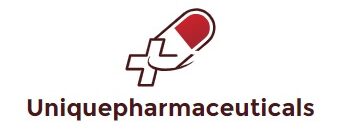Table of Contents
Symptoms of Bronchiolitis
Most cases are moderate and clear up within 2 to 3 weeks without the requirement for treatment, although some kids have serious signs and require healthcare facility treatment. The early signs of bronchiolitis resemble those of a acute rhinitis, such as a runny nose and a cough. Further signs then generally establish over the next couple of days, consisting of:- a minor heat (fever)
- a dry and consistent cough
- problem feeding
- fast or loud breathing (wheezing)
When to get medical aid
Most cases of bronchiolitis are not major, however see your GP or call your local doctor 111 if:- you’re fretted about your kid
- your kid has actually taken less than half their typical quantity throughout the last 2 or 3 feeds, or they have had a dry nappy for 12 hours or more
- your kid has a relentless heat of 38C or above
- your kid appears really exhausted or irritable
- your child is having problem breathing
- your child’s tongue or lips are blue
- there are long stops briefly in your child’s breathing
What triggers bronchiolitis?
- Bronchiolitis is brought on by an infection called the breathing syncytial infection (RSV), which is spread out through small beads of liquid from the coughs or sneezes of somebody who’s contaminated.
- The infection triggers the tiniest air passages in the lungs (the bronchioles) to end up being contaminated and irritated.
- The swelling decreases the quantity of air getting in the lungs, making it hard to breathe.
Who’s impacted?
Around 1 in 3 kids in the UK will establish bronchiolitis throughout their very first year of life. It most frequently impacts children in between 3 and 6 months of age. By the age of 2, nearly all babies will have been contaminated with RSV and approximately half will have had bronchiolitis. Bronchiolitis is most extensive throughout the winter season (from November to March). It’s possible to get bronchiolitis more than as soon as throughout the very same season.Treating bronchiolitis
There’s no medication to eliminate the infection that triggers bronchiolitis, however the infection generally cleans up within 2 weeks without the requirement for treatment. Most kids can be looked after in your home in the very same method that you ‘d deal with a cold. Make sure your kid gets enough fluid to prevent dehydration. You can offer babies paracetamol or ibuprofen to reduce their temperature level if the fever is disturbing them. About 2 to 3% of children who establish bronchiolitis throughout the very first year of life will require to be confessed to healthcare facility due to the fact that they establish more major signs, such as breathing troubles. This is more typical in early children (born prior to week 37 of pregnancy) and those born with a heart or lung condition.Preventing bronchiolitis
It’s really hard to avoid bronchiolitis, however there are actions you can require to lower your kid’s threat of capturing it and assist avoid the infection dispersing. You ought to:.- clean your hands and your kid’s hands regularly
- wash or clean toys and surface areas frequently
- keep contaminated kids in your home up until their signs have actually enhanced
- keep newborns far from individuals with colds or influenza
- prevent cigarette smoking around your kid, and do not let others smoke around them

